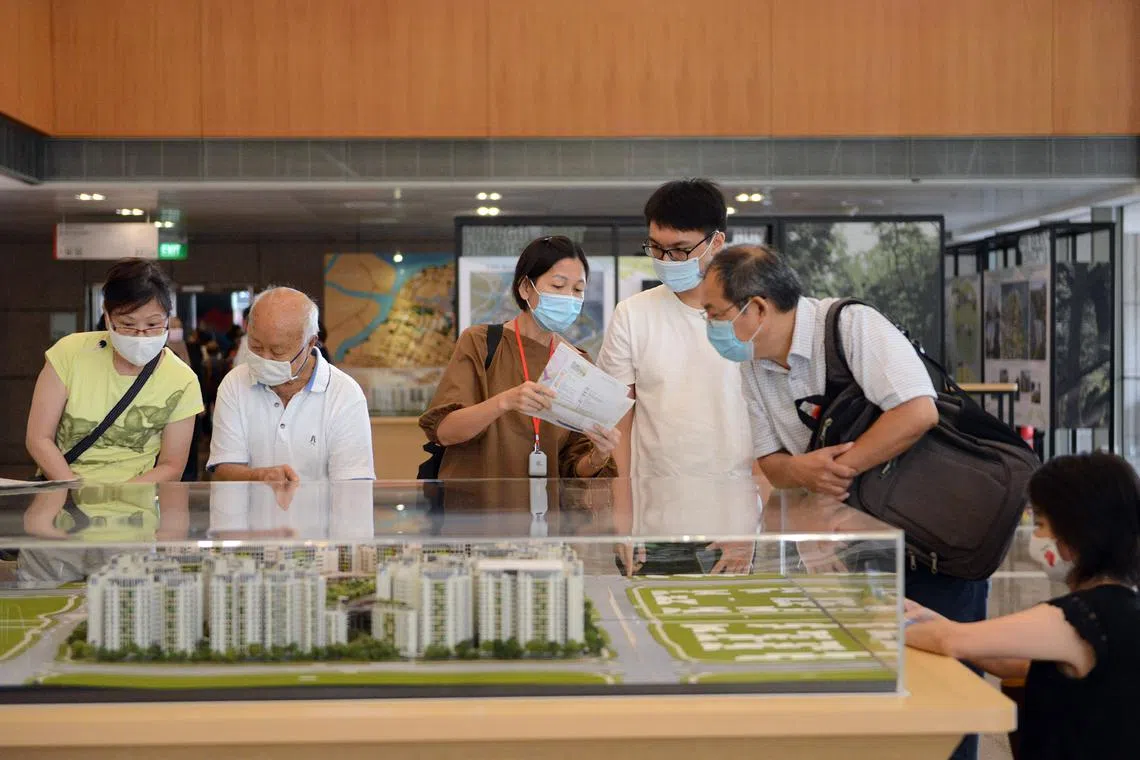Home owners facing ‘double whammy’ of higher home prices and rising mortgage rates: DPM Heng
Sign up now: Get ST's newsletters delivered to your inbox

The supply of public housing has been ramped up, with more than 23,000 flats launched in 2022, and up to 23,000 more flats will be launched in 2023.
PHOTO: ST FILE
Follow topic:
SINGAPORE - Home owners are facing a double whammy of higher home prices and rising mortgage rates even after two rounds of property cooling measures
Warning of a need to guard against a sustained increase in prices that is not backed by income and other fundamentals, he noted that Singapore’s property prices have remained buoyant despite global uncertainties and a greater supply. This is as demand for owner-occupied private and resale homes remains strong.
With borrowers facing larger monthly repayments on home loans, there is a need to pay attention to “the significant increases in mortgage interest rates”, said Mr Heng.
He noted that the three-month Sora, a widely used benchmark for floating mortgage rates, has shot up from 0.2 per cent to 3 per cent in the past year, and could rise further in the coming months before stabilising.
Still, the pace of home price increases has moderated in the fourth quarter and transaction volumes have also dropped.
The supply of public housing has been ramped up, with more than 23,000 flats launched in 2022, and up to 23,000 more flats will be launched in 2023.
Some 6,300 private units were added in 2022 through the government land sales programme, and another 4,100 units will come on in the first half of 2023.
New Redas president Tan Swee Yiow, in his maiden speech, noted that the past few years have been challenging for many businesses, including those in the real estate sector, with global growth slowing due to higher inflation, rising interest rates, and disruptions resulting from the Ukraine war.
The outlook for 2023 remains challenging as the global economy is projected to slow further this year, he said.
“In Singapore, with rising life expectancy and a low fertility rate, 25 per cent of the population is expected to be 65 and above by 2030. We need to address this demographic shift and provide sustainable urban solutions, including ones with a focus on senior living,” he said.
Mr Heng said that with the construction sector recovering and the easing of manpower bottlenecks, it is timely to refocus on the built environment sector.
“Most pressing is the need to ramp up construction productivity, for which digitalisation and tech adoption is key... The focus is not just on research discoveries, but also turning good ideas into practical industry solutions,” he said.
Mr Heng also pointed to the critical need to pivot to a much greener built environment, which today accounts for 40 per cent of annual global CO2 emissions.
“With global demand for smart and green buildings on the rise, (developers’) investment in these areas can give them an edge as they internationalise,” he said.


